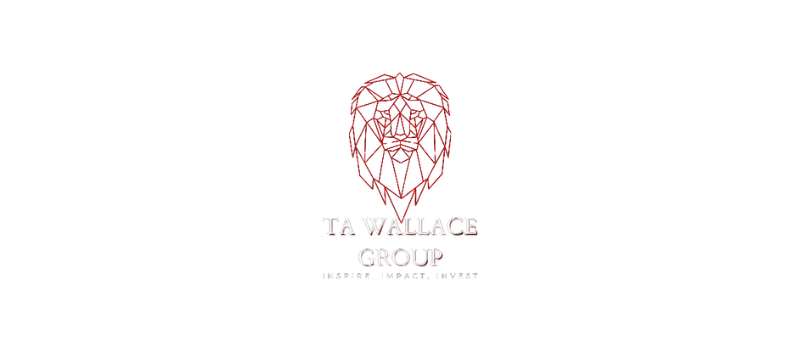Life Coaching 101: Transform Challenges into Opportunities

Welcome to “Life Coaching 101,” where the focus is on transforming challenges into opportunities through guided personal development. Life coaching is an empowering process that helps individuals achieve personal goals, enhance self-awareness, and overcome challenges through structured support and strategic guidance, including mindset shifts and motivational techniques. A life coach plays a pivotal role in facilitating self-discovery, setting actionable steps, and fostering a growth mindset, helping clients navigate career transitions, relationship issues, and other personal obstacles, while also focusing on emotional intelligence and self-improvement. With benefits like increased self-awareness, accountability, and improved resilience, life coaching provides personalized action plans and regular progress evaluations that cater to individual aspirations, utilizing coaching techniques such as skills assessment and feedback for personal growth. If you’re looking to harness the power of positive thinking and mindset shifts, life coaching offers practical tools and techniques such as goal-setting, active listening, and visualization exercises to foster lasting change and personal growth. Learn how to find the right life coach and explore strategies to align your goals with purposeful action, ensuring a supportive environment and effective communication. What is Life Coaching? Life coaching is a process that helps individuals achieve personal goals and overcome challenges through structured guidance. Life coaching works by facilitating self-discovery, setting actionable steps, and providing support to help clients reach their aspirations, with a focus on transformational coaching and adaptive strategies. Life coaches use various techniques to help clients gain clarity, develop a growth mindset, enhance accountability, and build emotional resilience through strategic planning and life skills. Defining the Role and Purpose of a Life Coach A life coach helps clients identify goals and overcome challenges to improve personal growth, utilizing success strategies and empowering clients to break through limiting beliefs. A life coach uses techniques like active listening, questioning, and cognitive restructuring to guide clients in building emotional resilience and self-efficacy. Life coaches assist in personal development by providing structured support, mentorship, and strategies that facilitate transformational change and personal vision. Benefits of Life Coaching Life coaching benefits include increased self-awareness, structured goal-setting, and enhanced personal growth, achieved through the use of coaching frameworks and life strategies. Life coaching provides accountability and support, helping individuals stay committed to their personal development goals, while fostering a proactive mindset and intention setting. Life coaching improves resilience and overall well-being through personalized action plans, regular progress evaluations, and resilience training that focus on stress management and life balance. How Life Coaching Can Help You Life coaching helps individuals by providing strategies and motivation for personal growth and goal achievement, using empowerment and goal alignment to ensure successful outcomes. Through personalized sessions, life coaching offers new perspectives on challenges, improves conflict resolution skills, and supports effective goal setting, while also enhancing communication skills and fostering a success mindset. Life coaching empowers individuals to overcome obstacles and facilitates lasting change through strategic use of coaching methodologies and performance enhancement. Challenges Addressed by Life Coaching Life coaching addresses challenges such as career transitions, relationship issues, and goal setting by providing guidance, support, and effective coaching tools for transformative change. Life coaching works by enhancing decision-making skills and overcoming personal obstacles through targeted strategies, accountability, and a supportive system for personal and professional success. Common Obstacles and Struggles Common obstacles and struggles include low self-discipline, stress management issues, and lack of emotional resilience, which can be addressed through coaching methodologies and adaptive strategies. These challenges hinder personal growth by creating barriers to goal achievement and healthy relationships, but can be overcome with strategic planning and life transition support. Life coaching strategies address these issues by enhancing self-discipline, improving stress coping mechanisms, building emotional resilience, and fostering adaptive strategies and self-motivation. Tools and Techniques Used in Life Coaching Life coaching tools and techniques include: Life coaches use these techniques to facilitate client self-discovery, goal achievement, and empowerment, transforming obstacles into opportunities for growth. Life coaching also employs assessments, worksheets, structured feedback, and skills assessment to track progress and identify obstacles, ensuring a comprehensive coaching process. Effective Strategies for Personal Growth Effective strategies for personal growth include introspection, values clarification, goal alignment, and the development of a personal vision that supports success. Personal growth strategies work by encouraging self-reflection through journaling to identify behavior patterns and core beliefs, employing narrative therapy and coaching methodologies. Prioritizing values helps align actions with personal and professional goals, supporting both performance coaching and life vision development. Finding the Right Life Coach Finding the right life coach involves evaluating credentials, checking experience in relevant areas, and ensuring a good personal fit through initial consultations, while considering factors like leadership coaching and effective communication skills. Research potential life coaches by reading reviews, checking certifications, and understanding their coaching approach to match your personal development goals, ensuring compatibility with your success strategies and life purpose. A trial session can help determine compatibility and coaching style suitability, providing insights into the coach’s use of mindfulness and stress relief techniques. Factors to Consider and Questions to Ask When choosing a life coach, consider the following factors: coaching frameworks, adaptability, and the ability to foster transformational change. Questions to ask include: These considerations and questions ensure selecting a life coach that best fits your needs, aligning with both your personal vision and support system goals. Transforming Challenges into Opportunities Transforming challenges into opportunities involves identifying and leveraging difficult situations to achieve personal growth and success, utilizing breakthrough strategies and a proactive mindset. Life coaching uses this approach to help individuals build resilience, adopt positive thinking, and enhance life skills to navigate obstacles effectively. The Power of Positive Thinking and Mindset Shifts The power of positive thinking and mindset shifts involves changing one’s outlook to improve personal development, emotional intelligence, and self-empowerment. Positive thinking helps individuals build resilience, form meaningful connections, and foster accountability partnerships. Life coaches use techniques like cognitive reframing, visualization exercises, and vision boards to promote positive mindsets and confidence. These methods support the development of emotional intelligence, resilience, and a success mindset. Frequently Asked Questions What is

